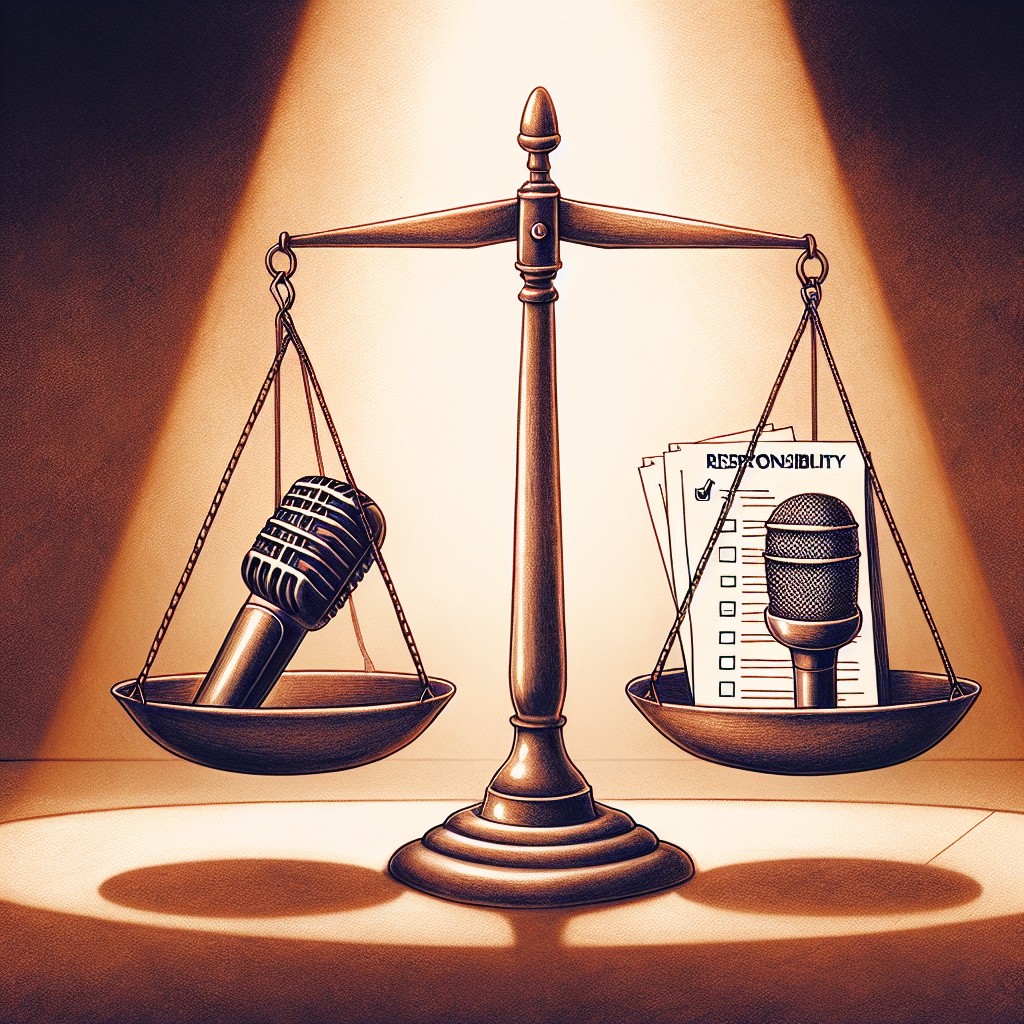The right to free speech is a fundamental principle that forms the cornerstone of a democratic society. It allows individuals to express their thoughts, opinions, and ideas without fear of censorship or punishment. However, this right is not absolute and must be balanced with the responsibility to ensure that speech does not harm others or incite violence.
Freedom of speech is protected by international human rights laws, such as the Universal Declaration of Human Rights and the International Covenant on Civil and Political Rights. These documents recognize the importance of allowing individuals to freely express themselves, as it fosters a vibrant public discourse and enables the exchange of diverse perspectives.
One of the key challenges in maintaining a balance between free speech and responsibility is determining the limits of acceptable expression. While individuals should have the right to express their opinions, this does not extend to hate speech, defamation, or incitement to violence. These forms of speech can have serious consequences, including the promotion of discrimination, harm to individuals or groups, and the destabilization of social harmony.
The responsibility to ensure responsible speech lies not only with individuals but also with society as a whole. Governments play a crucial role in protecting the right to free speech while also setting reasonable limits to prevent harm. The concept of hate speech, for example, varies across different jurisdictions, with some countries imposing strict laws to combat hate speech, while others adopt a more permissive approach. Striking the right balance between protecting individuals' rights and preventing harm is a complex task that requires ongoing dialogue and debate.
In addition to legal frameworks, media organizations and social media platforms also have a responsibility to monitor and moderate speech. With the rise of online platforms, the dissemination of information has become instantaneous and widespread. This has led to both positive and negative impacts on free speech. While the internet has empowered individuals to share their voices with the world, it has also facilitated the spread of harmful and false information. Social media platforms have a duty to combat hate speech, disinformation, and harassment, while also ensuring that freedom of expression is not unduly restricted.
Educating individuals about their rights and responsibilities when it comes to free speech is also essential. Promoting media literacy and critical thinking skills can empower individuals to discern between reliable information and propaganda, fostering a more informed and responsible public discourse. Schools, universities, and community organizations can play a crucial role in providing education and training on responsible speech.
In conclusion, the right to free speech is a fundamental human right that must be protected and respected. However, it is essential to balance this right with the responsibility to ensure that speech does not cause harm or incite violence. Governments, media organizations, social media platforms, and individuals all have a role to play in maintaining this delicate balance. By fostering a culture of responsible speech and promoting media literacy, we can create a society where freedom of expression thrives while also safeguarding the well-being and rights of all individuals.

Published on February 23, 2023
The Right to Free Speech: Balancing Expression and Responsibility
Share This Article
More Articles You Might Like
Discover More Content
Explore our collection of articles across various topics and categories. From cutting-edge technology insights to wellness wisdom, we curate the best stories to expand your horizons.
Article ID: 243